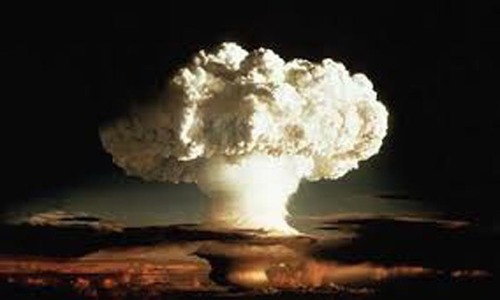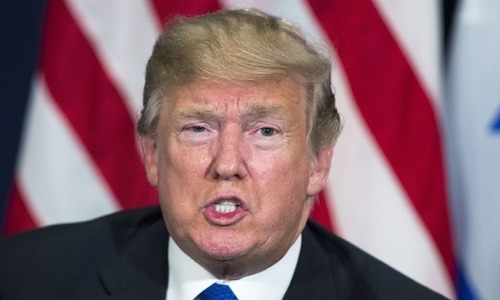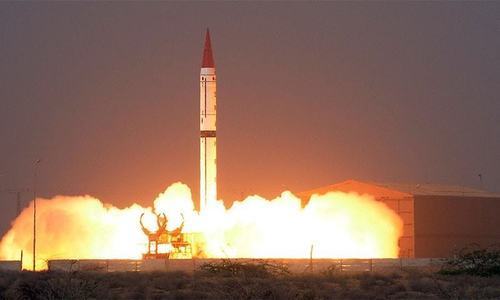UNITED NATIONS: The final preparatory meeting for next year’s review of the Nuclear Nonproliferation Treaty ended on Friday with deep divisions, and US Ambassador Robert Wood said reaching agreement at the 2020 conference “will be an incredibly difficult task.” But he told the closing session of the two-week preparatory conference that “it is a task we cannot abandon.”
The NPT is the world’s single most important pact on nuclear arms, credited with preventing their spread to dozens of nations since entering into force in 1970.
It has succeeded in doing this via a grand global bargain: Nations without nuclear weapons committed not to acquire them; those with them committed to move toward their elimination; and all endorsed everyone’s right to develop peaceful nuclear energy.
Treaty members every nation but India, Pakistan and North Korea who possess nuclear weapons, and Israel which is believed to be a nuclear power but has never acknowledged it gather every five years to review how it’s working. They try to agree on new approaches to problems, not by updating the treaty which is difficult, but by trying to adopt a consensus final document calling for steps outside the treaty to advance its goals.
Malaysia’s UN Ambassador Syed Mohd Hasrin Tengku Hussin, chair of the third preparatory conference, told a news conference that delegates “do not agree on everything but remain committed to full implementation” of the NPT, and talked about “how to accelerate measures to a nuclear-free world.” Citing “significant challenges,” he noted that the meeting took place “at a time of increasing international tension and deteriorating relationships between those countries that possess nuclear weapons” the US, Russia, China, Britain and France.
Hussin also singled out differences between nuclear weapon and non-nuclear weapon states on disarmament.
Iranian delegate Bahram Shahaboddin said in a closing statement that non-nuclear weapon states “are completely frustrated by the 50-year lack of progress on nuclear disarmament,” and continuing delaying tactics by the nuclear powers.
“We must not allow this to happen again. In 2020, we must say loud and clear enough is enough,” he said, singling out the United States for spending $1.2 trillion on its nuclear arsenal and “brazenly” threatening non-nuclear weapon states with nuclear weapons.
Hussin said delegates did agree on the agenda, procedures and president of the review conference Argentina’s Ambassador to Austria Rafael Grossi so in 2020 they can concentrate on substance.
Delegates to the preparatory conference rejected two sets of recommendations for the review conference so Hussin issued a final document called “reflections of the chair.” It says “there remain many more points of convergence in the views of states parties than there are divergences.” He stressed that “continued geopolitical challenges” underline the need to maintain the NPT as the cornerstone of nuclear disarmament and nonproliferation.
But he said: “There remain differing views on the implementation of the disarmament pillar, and these views need to be reconciled for there to be considered a balance as a whole” with the other pillars on nonproliferation and nuclear energy.
Rebecca Johnson, a security analyst and founding president of the International Campaign to Abolish Nuclear Weapons which won the 2017 Nobel Peace Prize, said: “The real questions for 2020 are going to be about the nuclear risks and treaties under threat from a few narcissistic leaders who are pulling out of them in order to keep proliferating and deploying nuclear weapons.”
Published in Dawn, May 12th, 2019



































